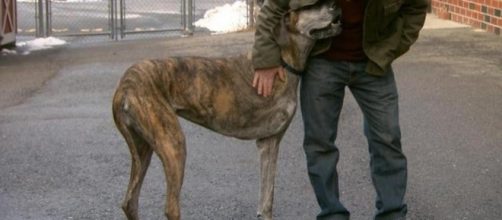You probably hear about dogs who can detect drugs, weapons and various diseases like cancer but recent studies are proving that canines can help fight bone cancer in humans and other animals. So many dogs are diagnosed with some type of cancer, making it the most common cause of their deaths. CBS correspondent Susan Spencer reports on cancer studies while following the life of Zoe the Great Dane, diagnosed with cancer.
Let’s meet Zoe and follow her struggles through cancer
As stated by Dr. Cheryl London, dogs do get cancer and most often do not survive the disease.
Zoe is a beautiful and lively eight-year-old Great Dane. She is full of heart and vitality. However, this big girl was diagnosed with life-threatening bone cancer last year and her only option was amputation of the affected leg. Zoe is doing great on three legs and continues to be part of a Cancer Research study, along with fellow Great Dane, Murphy, through a field known as Comparative oncology.
Cancer research with dogs by Drs. London and Janeway
Veterinarian London is working closely with Dr. Katie Janeway at the Dana-Farber /Boston Children’s Cancer Center. The vet is a research professor at the Cummings School of Veterinary Medicine at Tufts University and the study is done in an effort to understand cancer in dogs while developing new treatments which may be applied to humans.
Janeway treats bone cancer in children in the same manner as London treats dogs with cancer.
Comparative oncology is a method where cancer doctors work together to find a cure, with the idea that many cancers in humans and dogs are very similar. Such cancers in dogs like melanoma, lymphoma, and breast cancers are almost indistinguishable from their human counterparts. The program puts new meaning to man’s best friend, especially if they can help save a life. Dr. Janeway states that through the study of Osteosarcoma, the disease in dogs and kids is amazingly similar. The goal is to find a promising drug for the cure, hoping that the new drug can come in Zoe’s lifetime. Research continues to help fight bone and other types of cancers in both canine and humans.

